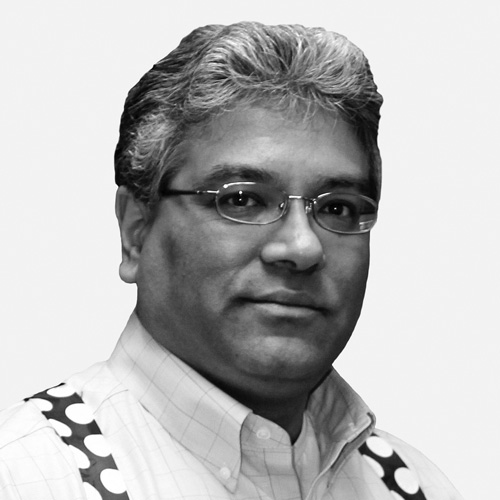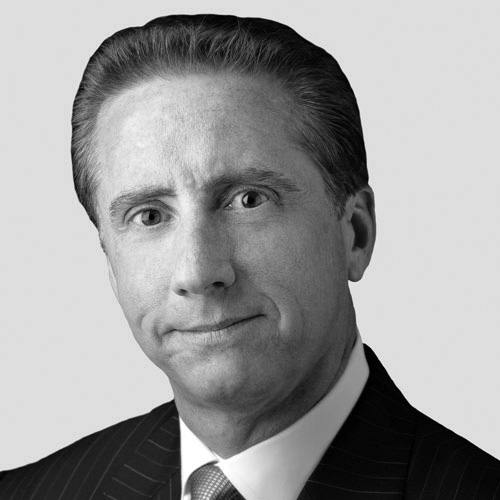The insurance industry is often known for being slow-paced, but Markel Corporation’s general counsel and secretary, Richard Grinnan, disagrees with that reputation. Everything he has been exposed to at the Virginia-based insurance and investment holding company has been exciting and dynamic, he says.
Grinnan grew up in Richmond, Virginia, so he was relatively familiar with the company before joining in 2012. If it wasn’t for his mentor Mike Jones, however, Grinnan may not have stepped into his current roles. Grinnan developed a relationship with Markel while still an associate attorney at McGuireWoods LLP. Jones was a partner there at the time, but in 2006, Jones became Markel’s general counsel. When a position at Markel opened up to work on Jones’ team, Grinnan jumped at the opportunity.
“I did my homework on Markel,” Grinnan says. “I found that its track record of success was nothing short of remarkable.” Grinnan made it through the interview process, and when Jones retired in May 2014, Grinnan stepped into his shoes. “The insurance industry is one that I really wished I had known about earlier in my career,” Grinnan says.
Grinnan disagrees with the cliché characterization of insurance, which depicts it as a necessary evil. On the contrary, he argues, the infrastructure of the developed world would not exist without insurance. “We enjoy quality of life and peace of mind because of insurance,” Grinnan says. “Believe me, you and I would be paying a great deal more for food, clothing, housing, electricity, and fuel, among other items, if it were not for insurance.”
The opportunities to help others protect their assets and enable risk-taking are endless and cannot be accomplished without insurance, according to Grinnan. “There are so many financial risks that individuals and businesses are exposed to that can and should be protected against with insurance,” Grinnan explains. “Through my own exposure to the insurance industry through Markel, I have come to realize that insurance is an essential good.”
“We enjoy quality of life and peace of mind because of insurance. Believe me, you and I would be paying a great deal more for food, clothing, housing, electricity, and fuel, among other items, if it were not for insurance.”
Markel offers many opportunities for its clients to protect themselves against risks, and the clients are incredibly varied, from small-town business owners to Fortune 500 corporations and everything in between. Markel’s main insurance products can be categorized into four divisions: wholesale, specialty, global insurance, and Markel International. These divisions include coverage of oil rigs and refineries, museums, bicycles, community hospitals, boats and yachts, classic cars, after-school programs, investment advisors, medical transport companies, horses and farms, special events, office buildings, fine art collections, data breach, excess and umbrella, general liability, trade credit, inland marine, ocean marine, professional liability, products liability, management liability, environmental and energy, and workers’ compensation. Markel also has a global reinsurance division that writes treaty reinsurance for brokers around the world.
Markel’s specialty products cater to those in need of coverage for risks that traditional carriers avoid. This includes summer camps, all-terrain vehicles (ATVs), or day-care centers, according to Grinnan. “One of our core products is workers’ compensation coverage, which we sell to small companies through agents and brokers in small towns,” he says. “We’re a niche insurer and have an underwriting appetite that’s a little contrarian.” Ultimately, Markel focuses on delivering a hard-to-match customer experience.
Discipline in its underwriting approach is a challenge, Grinnan says, but Markel is committed to the principle in a way he says others in the industry often are not. Others focus on increasing premium volume and as Grinnan says—“getting bigger for the sake of bigness”—and lowering premiums in the process to capture market share, relying on investment results to make a profit.
“At Markel, we do not seek to price policies in a manner that is unprofitable and therefore unsustainable in the long term,” he says. “But instead we’ll walk away from business that we do not believe would generate a return based on premium alone.” The company views investment returns as another engine to create shareholder value rather than one to support writing unprofitable policies, Grinnan explains.
Markel’s strategy is working, and it has experienced a great deal of growth in a relatively short period of time. After acquiring Alterra Capital Holdings Limited on May 1, 2012, Markel almost doubled its size and has continued to grow through smaller acquisitions as well. For Grinnan, insurance provides creative opportunities, which he takes advantage of quite often.
“Size and complexity present great opportunities for creativity,” he says. Markel certainly has both, and Grinnan explains that there’s never a dull moment at Markel. “It can be hard to catch your breath sometimes,” he says. “This type of environment lends itself to the creative mind. There is more to do than time to do it in.”
Improving processes, identifying better ways of doing things, making the complex simple: these are the types of opportunities that present themselves on a daily basis to Grinnan at Markel. “Working with others, collaborating, not being afraid to ask ‘dumb’ questions or to solicit advice from others, these are the activities I try to engage in to be creative,” he says.

